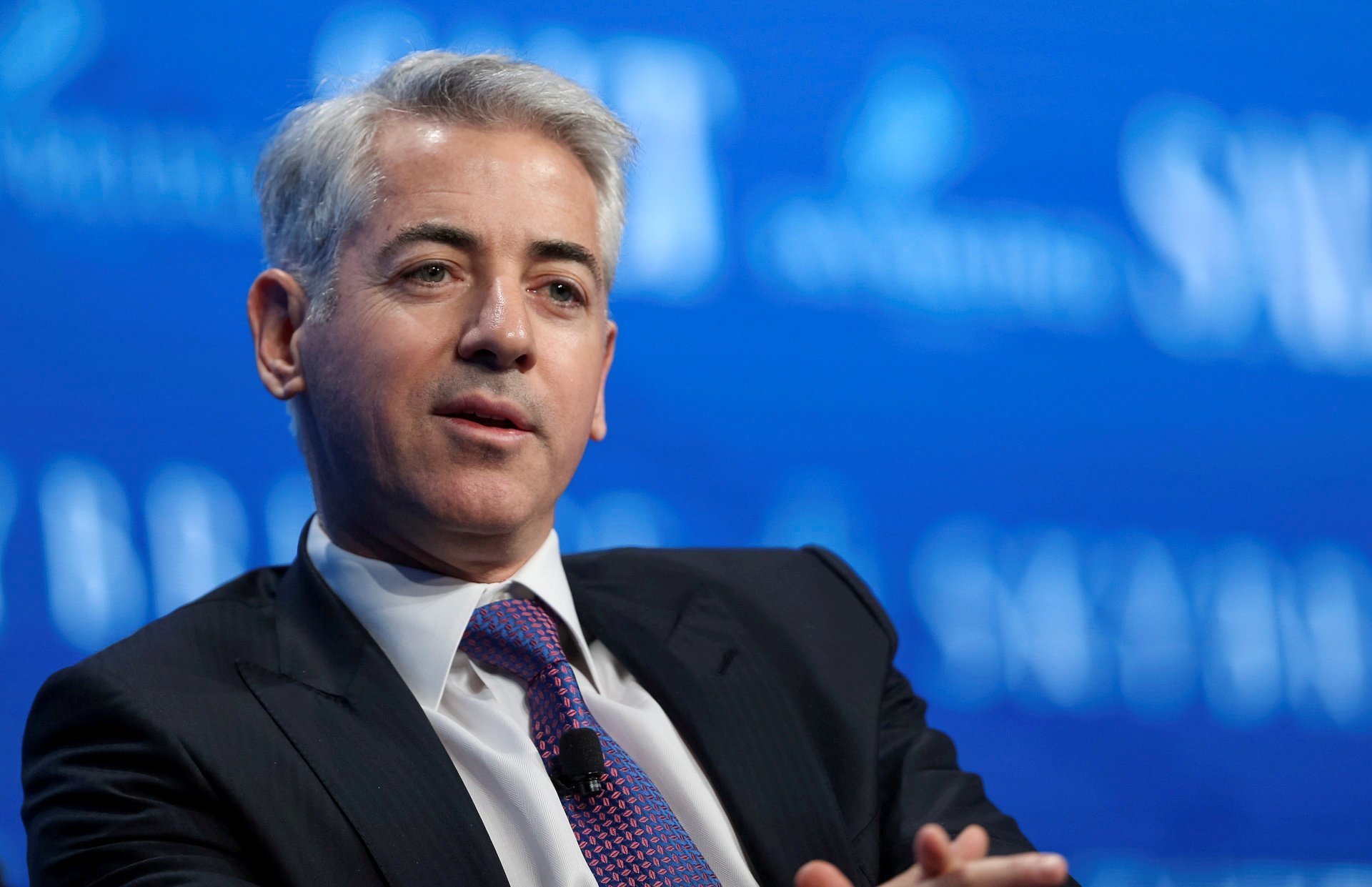The Challenges And Lessons Of Bill Ackmans Pershing Square USA IPO

Even seasoned investors like Bill Ackman can encounter substantial hurdles in the high-stakes world of finance. The recent journey of Ackman’s Pershing Square USA (PSUS) initial public offering (IPO) exemplifies the unpredictable nature of the financial markets and investor sentiment. Despite Ackman's storied career and proven track record, his latest venture faced significant challenges that ultimately led to the withdrawal of the offering.
An Ambitious Beginning
Bill Ackman, the founder and CEO of Pershing Square Capital Management, initially set an ambitious fundraising goal of $25 billion for the PSUS IPO. This target, however, was met with scepticism from the financial community. The size of the offering was perceived as overly ambitious, raising concerns about its feasibility. Ackman’s reputation as a high-profile investor did not allay these doubts, as potential investors questioned whether the market demand could meet such a lofty goal.
Scaling Down
Facing reality, Ackman and his team decided to significantly reduce the fundraising target from $25 billion to $2 billion. This drastic reduction was a critical move, reflecting either a strategic pivot or a response to lukewarm investor interest. Such a significant downscaling can often signal potential weaknesses or recalibrations in the underlying business strategy, causing further investor trepidation.
Investor Concerns and Roadshow Feedback
The roadshow, a critical phase in any IPO process where the company presents its case to potential investors, revealed several concerns. Investors expressed unease about Ackman’s dominant role at Pershing Square Capital Management. His outsized presence and influence raised questions about governance and the ability of the organization to operate independently of his leadership.
Additionally, the initial target of $25 billion was viewed as excessive, leading to doubts about the practicalities of such a large capital raise. There were also concerns about the fund's potential performance post-IPO, specifically whether it would trade at a premium. In the competitive landscape of investment funds, the ability to trade at a premium is often a critical indicator of market confidence and future success.
The Impact of Key Investor Withdrawal
The withdrawal of a key investor compounded these issues, delivering a significant blow to the confidence in the IPO. The backing of major investors often serves as a seal of approval, and their withdrawal can lead to a domino effect of waning interest. This development further complicated the fundraising efforts, as other potential investors reconsidered their positions.
Cancellation of the IPO
On July 31, 2024, Pershing Square USA officially announced the withdrawal of its planned IPO. Ackman cited a persistent question among investors: whether they would be better served by waiting to invest in the aftermarket rather than participating in the IPO. This hesitation underscored the broader uncertainty and lack of immediate value perceived in the IPO itself.
Reflection and Future Plans
Despite this setback, Ackman remains optimistic about the future. He highlighted the "enormous investor interest" in PSUS and indicated plans to reassess and potentially return with a revised transaction proposal. This forward-looking approach suggests that Ackman and his team are not deterred by this experience but rather view it as a learning opportunity to better align with market expectations and investor sentiment.
Broader Implications and Market Sentiment
The cancellation of the PSUS IPO is a reminder of the complex and often volatile nature of the financial markets. Even for a seasoned investor like Ackman, navigating investor sentiment and market dynamics is a challenging endeavour. This episode highlights several critical aspects for future IPOs:
Market Size and Timing: An overly ambitious fundraising target can deter investor interest, especially if the market does not seem ready to absorb such a large offering.
Governance and Leadership: The perception of an outsized influence by a single individual can raise red flags about governance and operational independence.
Investor Confidence: Securing and maintaining the commitment of key investors is crucial. Their withdrawal can significantly undermine the perceived viability of the offering.
Market Environment: Broader market conditions and investor sentiment play a vital role. In an environment where investors are increasingly discerning, the value proposition of an IPO must be compelling and clear.
Bill Ackman's experience with the Pershing Square USA IPO underscores the importance of flexibility, market alignment, and investor communication. While the initial attempt faced insurmountable challenges, the lessons learned could pave the way for a more successful endeavour in the future. In the world of high finance, adaptation and resilience are key, and Ackman’s response to this setback reflects the enduring spirit of innovation and persistence.
World Liberty Seeks Federal Trust Charter
World Liberty Financial, the crypto venture backed by the Trump family, has applied for a US national bank trust charter... Read more
Saudi Banks Tap Overseas Markets
Saudi Arabia’s banks are borrowing from international markets at their fastest pace on record, as lenders try to squar... Read more
Amazon Continues To Cut 16000 Gone
Amazon has announced plans to cut a further 16,000 roles from its corporate workforce, extending the cost and organisati... Read more
The UK May Have A Voice In Ai
Europe’s AI sector has grown accustomed to playing catch-up. Capital has flowed more slowly than in Silicon Valley, va... Read more
Musk Applies Pressure To BT
Britain’s broadband market has spent the past decade locked in a familiar pattern. Incumbents invested heavily in fibr... Read more
Blackrock Sees EMEA Moving Into Private Assets
BlackRock has warned that investors across Europe, the Middle East and Africa are reshaping portfolios in response to wh... Read more

